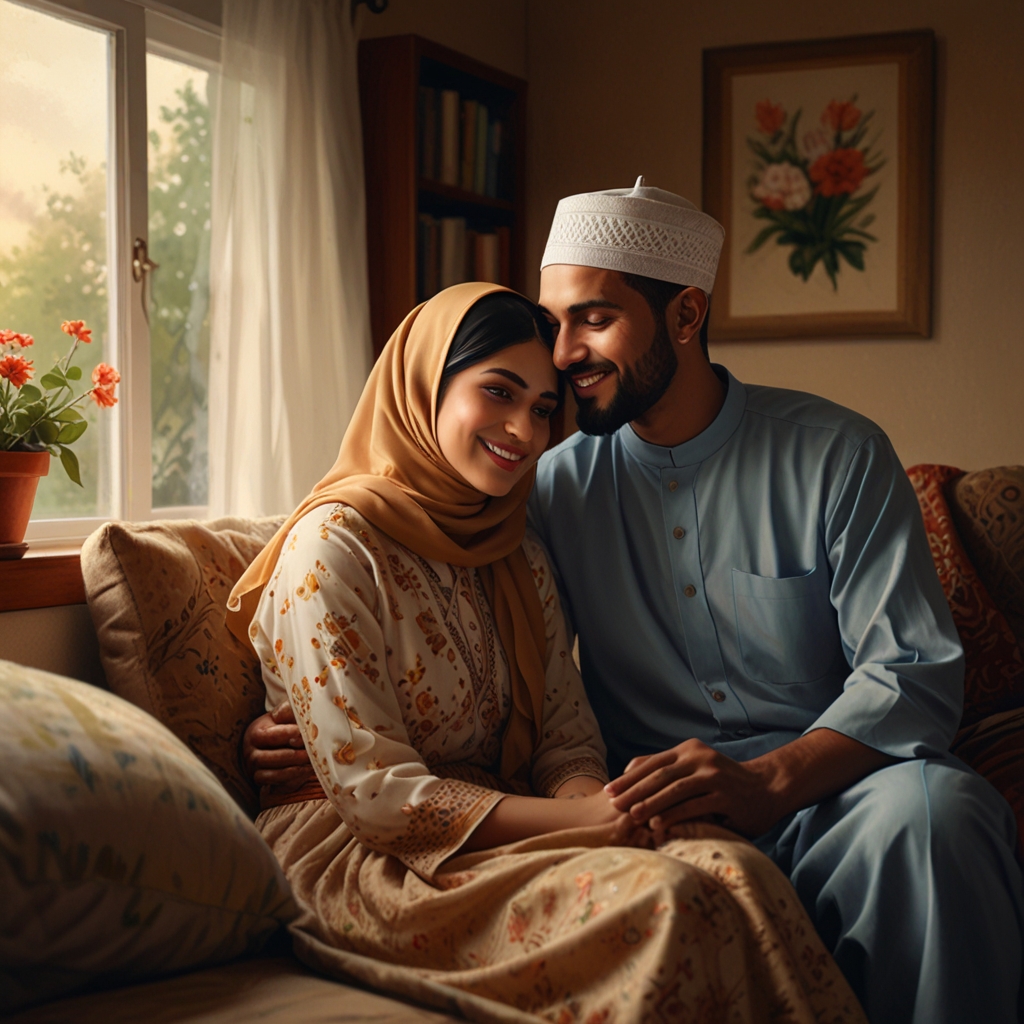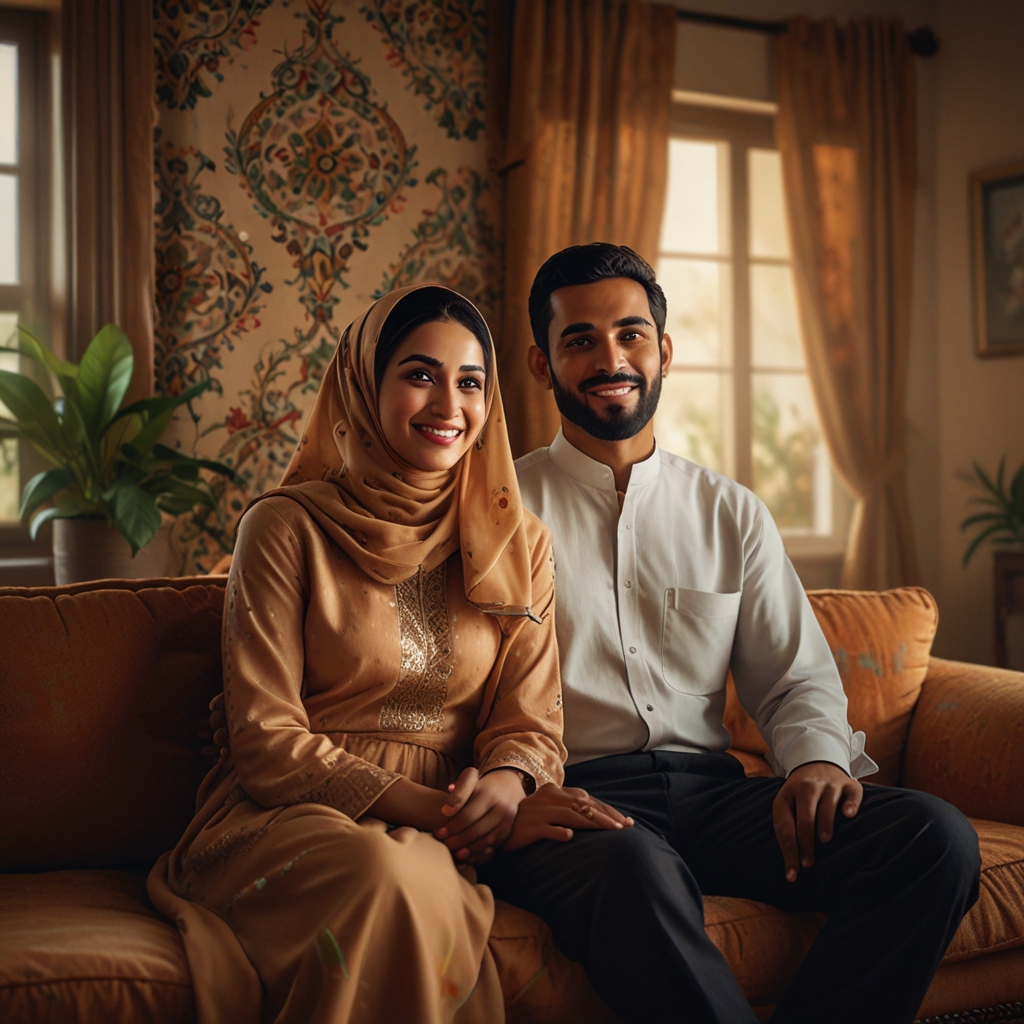Discover what Islam says about marital intimacy and whether the 69 sex position halal or haram, with a focus on respect, consent, and ethical guidelines


Is 69 Sex Position halal or haram ?
Many couples use mutual or simultaneous oral sex with their spouses, also known as oral sex in 69 position. It is our responsibility as Muslims, we must understand how the Quran and Islamic Sharia view this intimate act after marriage.
According to most Islamic scholars, these acts are inappropriate or shameful in Islam.
The mouth, designated for the remembrance of Allah, reciting the Qur’an, and sending blessings to the Prophet Muhammad (ﷺ), should not be employed for such impure activities, particularly when impurities enter the mouth.
Due to this, Islamic scholars discourage doing the 69 position, and others consider it not halal in Shariah.
Here, we will discuss why the 69 position is prohibited according to many Islamic scholars’ views of the Holy Quran, Sunnah, and Islamic Sharia. Taking a detailed, authoritative, and scholarly look at the reasons behind this prohibition, we shed light on the importance of following them.
2. Understanding the Ethics of Sexual Relations in Islam
Sex in Islam is not just about physical satisfaction; They also reflect moral guidelines that prefer both partners. Islam encourages healthy, love and respectable sexual relationships in marriage. Both husband and wife are seen as equal partners, and their needs – both emotional and physical – should be respected and fulfilled.
The theme “69 Sex Status allowed in Islam” is not addressed specifically in religious texts. However, Islam learns that any function of intimacy should be carried out in a way that corresponds to moral principles. These include mutual consent, avoiding loss and compliance with humility. As long as both partners are comfortable and there is no damage, the functions of intimacy are generally acceptable. However, some behavior that destroys or damages a partner is banned in Islam.
Ethically, sexual intimacy in Islam should promote love and deep relationship between husband and wife. The attention is to ensure that both partners feel respected, care and emotionally complete. This approach emphasizes the importance of communication and mutual understanding in marital conditions, and ensures that any action is agreed by both sides.
Islamic teachings do not provide clear instructions on specific sexual positions such as “69 sex status allowed in Islam”, but they emphasize that conditions should be created on mutual consent, trust and respect. Both partners are encouraged to participate in sexual relationships that give happiness and satisfaction to both, without connecting to any harmful or immoral. The Vinay concept is also important, as the confidentiality of the marriage bed should be respected all the time.
Why is 69 Position Prohibited in Islam?
Islamic scholars interpret the prohibition of engaging in the 69 position based on key principles found in the Holy Quran, Sunnah, and Islamic Sharia. This type of intercourse is not halal according to Islamic scholars for the following reasons:
No 01: Goes Against Modesty and Decency
The 69 position involves individuals placing their mouths on each other’s private parts, which resembles behavior seen in some animals. This kind of behavior is deemed inappropriate within the Islamic framework as it contradicts the values of modesty and decency that Islam promotes.
Islam emphasizes maintaining the sanctity of the marriage bond and avoiding practices that may lead to impurity. So, the 69 position contradicts the essence of lawful and dignified intimacy in Islam.
No 02: Sexually Transmitted Disease Risk
According to Islamic Shariah, preserving Muslims’ physical well-being is essential. The 69 position, involving close contact with genitalia and potential fluid exchange, poses a risk of transmitting sexually transmitted diseases (STDs).
Islam encourages believers to protect themselves from harm and the health risks associated with oral sex. The spread of infections has become a compelling reason for Islamic scholars to discourage the practice. Thus, the prohibition of the 69 position aligns with Islamic principles of safeguarding one’s health and well-being.
No 03: Non-Muslim Practices
The 69 position, with its explicit nature and association with non-Muslim cultures, may be seen as imitating practices contrary to Islamic Shariah. Muslims need to differentiate themselves from non-Muslims to preserve their faith and maintain their moral and spiritual integrity.
By abstaining from the 69 position, Muslims demonstrate their commitment to following the Holy Quran, the Sunnah, and Islamic Sharia teachings. This adherence to Islamic principles helps Muslims journey towards spiritual purity and righteousness.
No 04: Violation of Purity Principles
Islam emphasizes the importance of maintaining physical purity by avoiding contact with impure substances. Semen is regarded as impure in Islam, and intentionally touching or tasting it is discouraged.
In 69, the mention of bodily fluids flowing through the mouth, especially during intimate acts, may be perceived as conflicting with Islamic principles that underscore cleanliness and physical purity.
Islamic teachings are of great importance for mutual respect and privacy in marriage conditions, especially about sexual intimacy. The civilian tape is sacred, and both partners are encouraged to promote a relationship created on love, trust and respect.
The theme “69 Sex Status allowed in Islam” is not directly addressed in the Qur’an or Hadith, but the principles of mutual respect and privacy are emphasized. Islam encourages a love and respectable relationship between husband and wife, where intimacy is seen as an expression of love and care, not just a physical function. Both husband and wife should feel comfortable and safe in their relationship, knowing that their privacy would be respected and their dignity will be retained.
Islamic guidelines emphasize that intimacy should not be published. What happens privately between a husband and wife should be private. This feeling of privacy ensures that the marriage bond is protected from external influence and sacred. Therefore, intimacy’s privacy is an important aspect of marital conditions in Islam, and it is consistent with values of humility and respect.
Although specific positions such as “69 sex status allowed in Islam” are not discussed in Islamic teachings, the main value is to ensure that both husband and wife are treated with respect, dignity and goodness. Intimacy should be a thing that strengthens marital bonding, rather than a task that can cause loss or discomfort.
69 position is haram?
The 69 position is prohibited in Islam because it contradicts the teachings of the Holy Quran, Sunnah, and Islamic Sharia. This intimate position goes against the principles of modesty and purity emphasized in Islamic Shariah.
Medical science also cautions against the 69 position of oral sex as it increases the chances of passing on infections and diseases. Therefore, Muslims should engage in clean, respectful, and modest forms of intimacy to adhere to Islamic principles.
So, being Muslims, we should follow Islamic teachings on modesty and purity when engaged in intimate acts. The 69 position should be avoided at all costs as it undermines the basic values of Islam.
Facts about semen drinking
